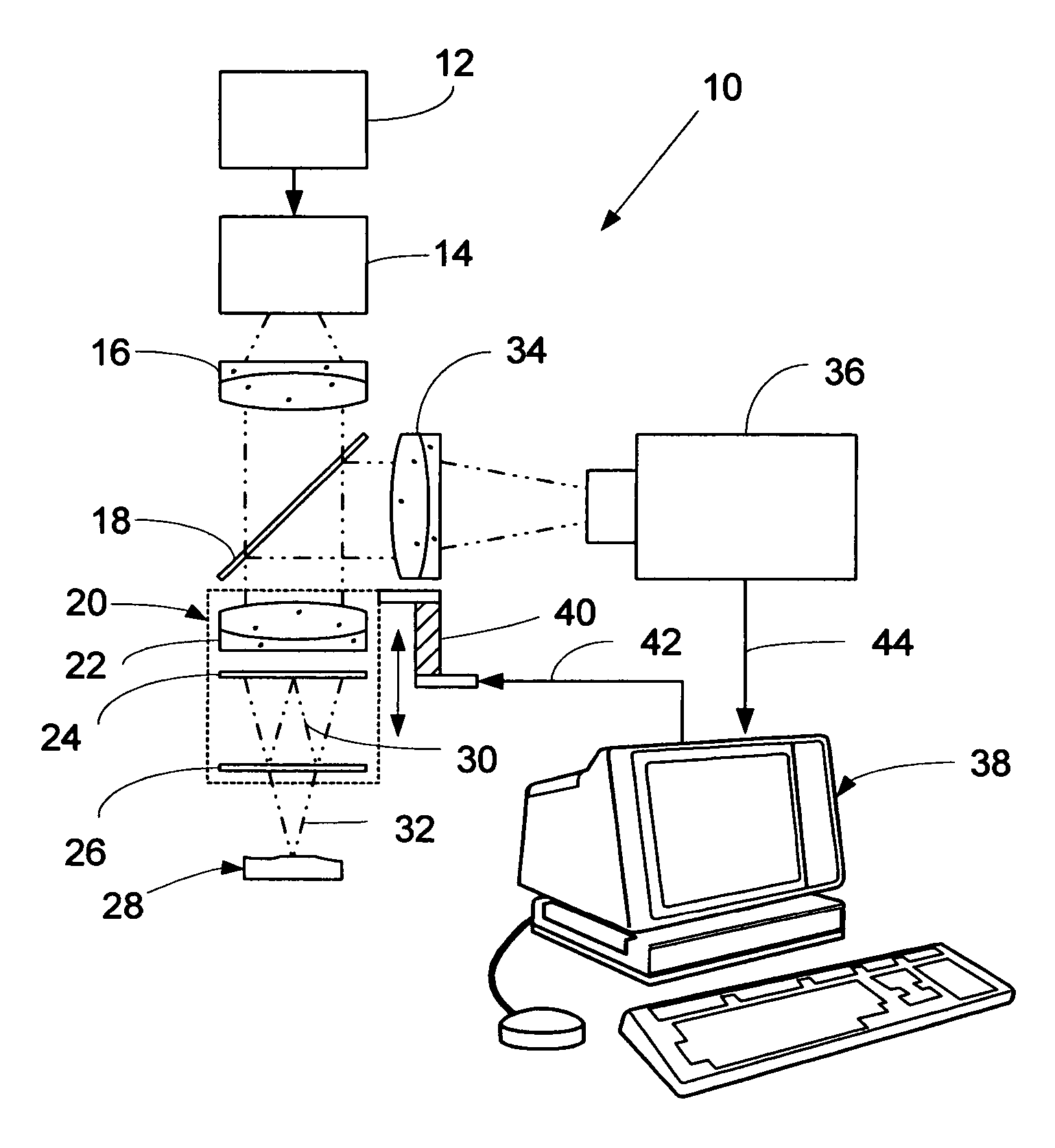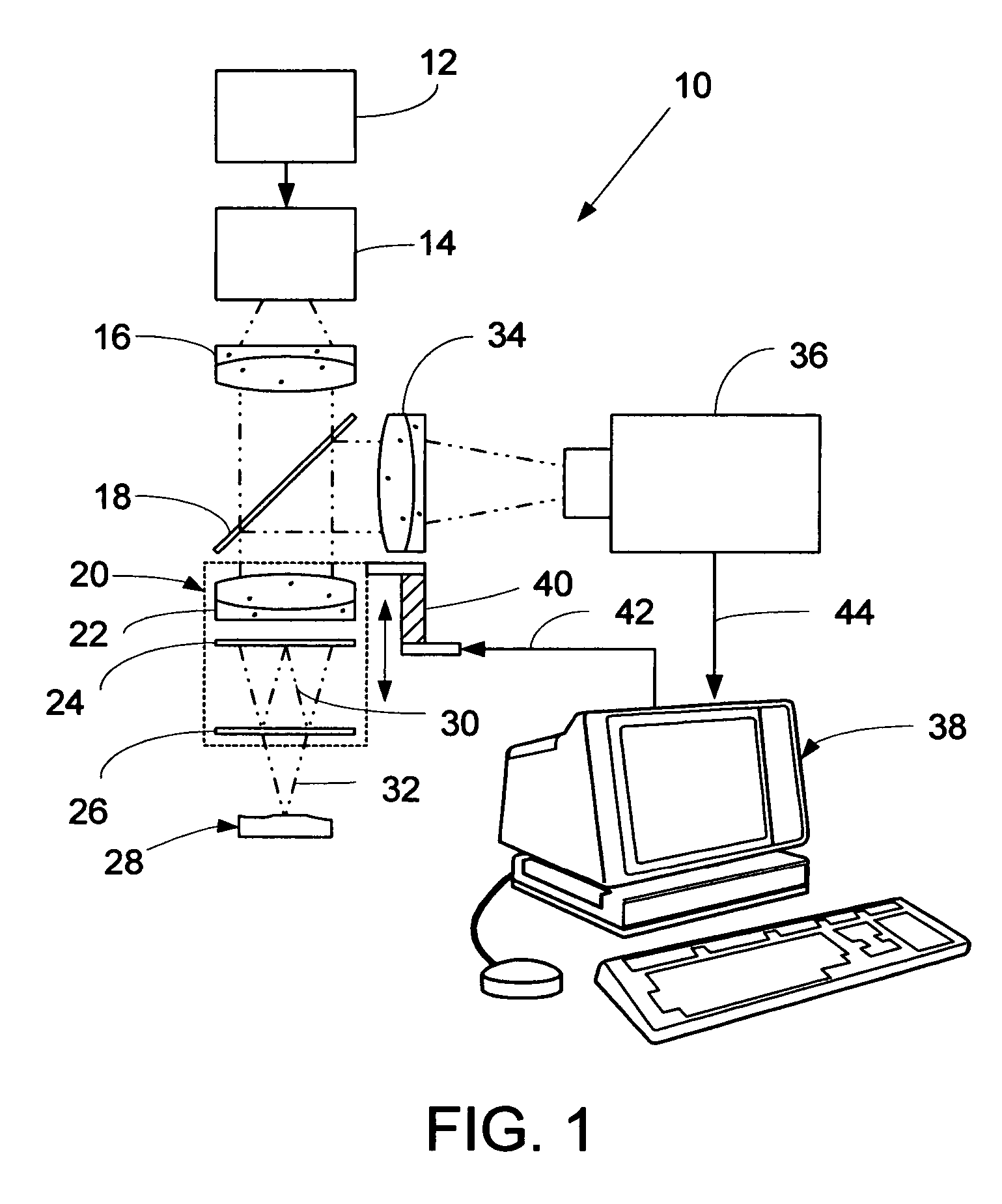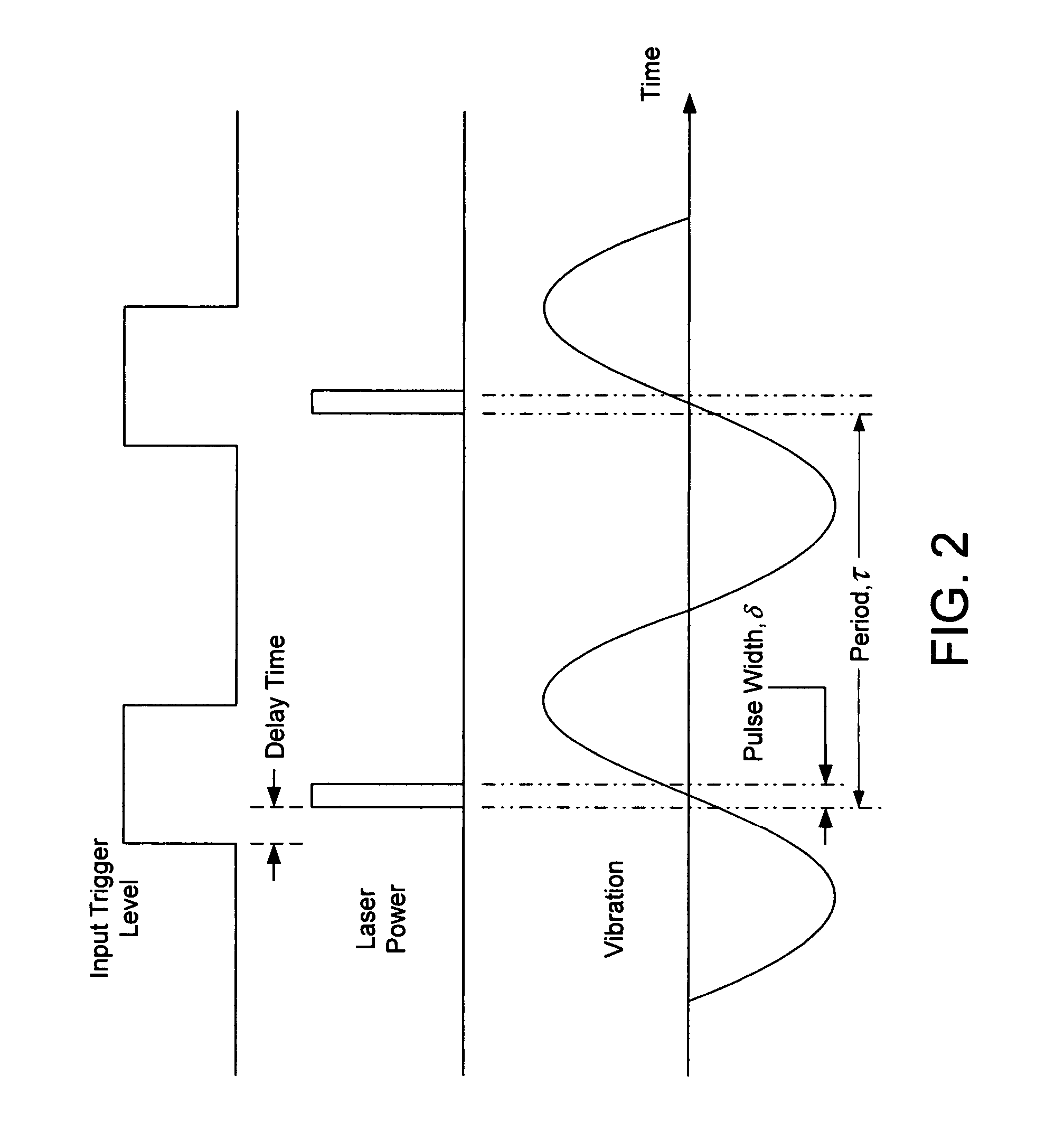Stroboscopic interferometry with frequency domain analysis
a frequency domain analysis and interferometer technology, applied in the field of precision optical metrology instruments and methods, can solve problems such as significant errors, wavelength instability, and imaging interferometers
- Summary
- Abstract
- Description
- Claims
- Application Information
AI Technical Summary
Benefits of technology
Problems solved by technology
Method used
Image
Examples
Embodiment Construction
[0018]Reference is now made to FIG. 1 which shows an embodiment of the computer-based, stroboscopic interferometric microscope system (the “system”) of the invention employing FDA analysis to quantitatively measure the microscopic topography of a vibrating object such as, but not limited to, for example, a MEMS or SAW device.
[0019]As seen in FIG. 1, the inventive system, designated generally at 10, comprises a source 14 that is modulated by a signal generator 12, for example, an arbitrary waveform generator (AWG) to provide a series of pulses of illumination. For example, the embodiment of FIG. 1 supplies, e.g., a sequence of pulses of constant pulse width δ at a uniform spacing τ as shown in FIG. 2. The source 12 may be any suitable type capable of being modulated to provide pulses having durations that are sufficiently short to apparently “freeze” fringes. Suitable sources include light emitting diodes (LEDs), laser diodes (LDs), and white light sources. Preferably LEDs with spect...
PUM
 Login to View More
Login to View More Abstract
Description
Claims
Application Information
 Login to View More
Login to View More - R&D
- Intellectual Property
- Life Sciences
- Materials
- Tech Scout
- Unparalleled Data Quality
- Higher Quality Content
- 60% Fewer Hallucinations
Browse by: Latest US Patents, China's latest patents, Technical Efficacy Thesaurus, Application Domain, Technology Topic, Popular Technical Reports.
© 2025 PatSnap. All rights reserved.Legal|Privacy policy|Modern Slavery Act Transparency Statement|Sitemap|About US| Contact US: help@patsnap.com



